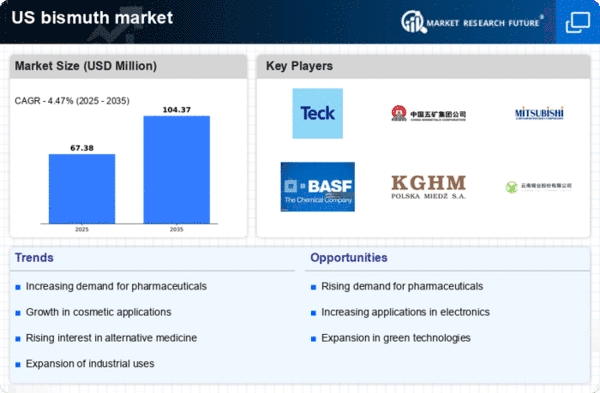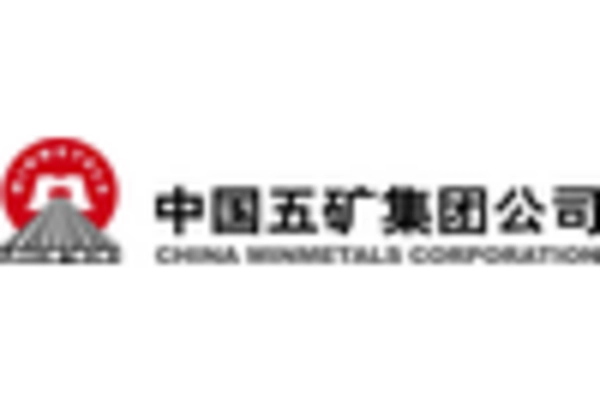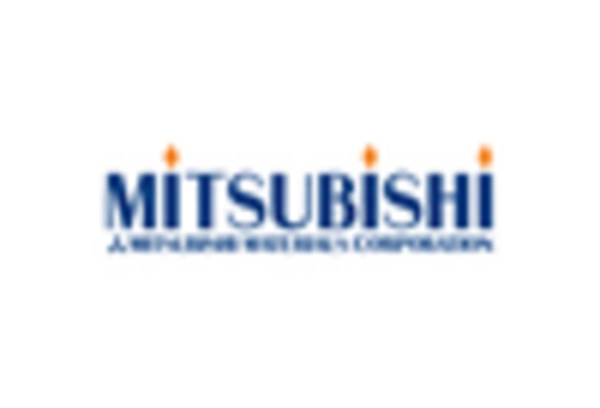US Bismuth Market Summary
As per Market Research Future analysis, the US bismuth market Size was estimated at 64.5 USD Million in 2024. The US bismuth market is projected to grow from 67.38 USD Million in 2025 to 104.37 USD Million by 2035, exhibiting a compound annual growth rate (CAGR) of 4.4% during the forecast period 2025 - 2035
Key Market Trends & Highlights
The US bismuth market is experiencing a positive trajectory driven by diverse applications and sustainability efforts.
- The pharmaceutical sector represents the largest segment, reflecting a growing demand for bismuth-based compounds.
- Technological advancements in production processes are enhancing efficiency and reducing costs in the bismuth market.
- Sustainability initiatives are gaining traction, as industries seek non-toxic alternatives to traditional materials.
- Key market drivers include increased applications in electronics and regulatory support for non-toxic alternatives.
Market Size & Forecast
| 2024 Market Size | 64.5 (USD Million) |
| 2035 Market Size | 104.37 (USD Million) |
| CAGR (2025 - 2035) | 4.47% |
Major Players
Teck Resources Limited (CA), China Minmetals Corporation (CN), Mitsubishi Materials Corporation (JP), BASF SE (DE), KGHM Polska Miedz S.A. (PL), Yunnan Tin Company Limited (CN), Southern Copper Corporation (US), Nyrstar NV (BE)
















